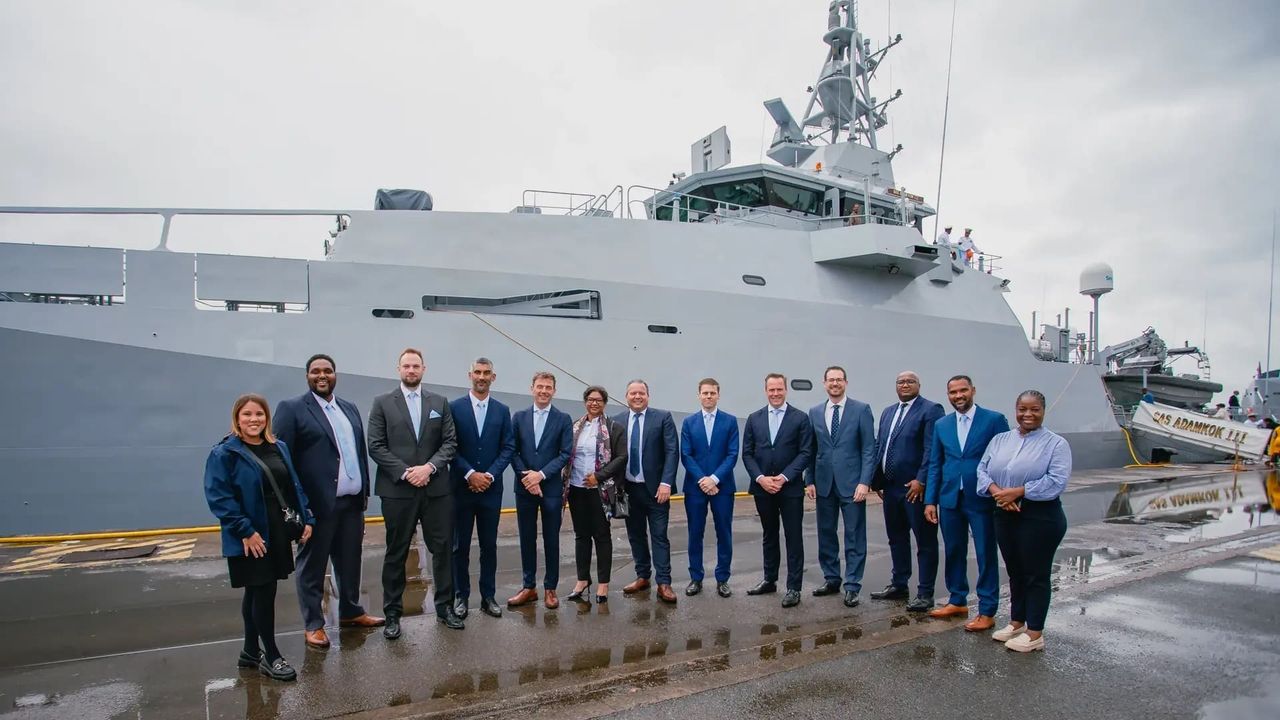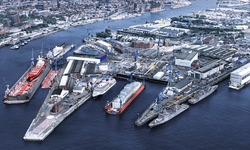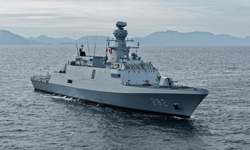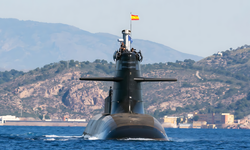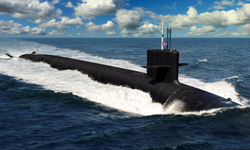Damen Shipyards Cape Town (DSCT) has delivered the third Multi-Mission Inshore Patrol Vessel (MMIPV), P1573, to the South African Navy at Naval Base Durban. This delivery represents a significant step forward in strengthening South Africa’s maritime security while advancing the country's shipbuilding capabilities. The P1573 joins sister vessels P1571 and P1572 in the Navy's patrol squadron, based in Durban, and is strategically positioned to help safeguard the nation’s critical 2,700-kilometer coastline.
The handover ceremony, attended by senior naval officials, government representatives, industry partners, and key stakeholders, highlighted the importance of this project in bolstering the South African Navy’s operational capabilities. "The delivery of P1573 is a significant milestone, not just in terms of the vessel itself, but as a demonstration of our ongoing commitment to support the South African Navy, empower the local shipbuilding industry, and enhance maritime security," said Sefale Montsi, Director at Damen Shipyards Cape Town.

P1573, designed for endurance, versatility, and operational excellence, features Damen’s patented Axe Bow design for superior seakeeping and is armed with a 20mm Super Sea Rogue gun. The vessel also boasts advanced FORT (Frequency Modulated Optical Radar Tracker) surveillance technology and is equipped with 9m and 7m interceptor boats for rapid deployment. These features make it highly adaptable for various operations, including border protection, search and rescue, and training missions.
The delivery of P1573 was the result of close collaboration between DSCT, the South African Navy, and ARMSCOR, with all parties working together to modernize the Navy’s fleet. "This project has exemplified the power of collaboration—within DSCT, across our supplier base, and most importantly, with our partners in the Navy and ARMSCOR," Montsi explained. "Everyone involved in this project has contributed to its success and has reason to be proud of the work we've done together."
P1573 is the latest addition to the fleet as part of Project Biro, an initiative commissioned by the Department of Defence to enhance South Africa’s inshore patrol capability and stimulate local industry development. The project has created more than 1,000 direct jobs and over 4,000 indirect jobs, with DSCT working closely with 848 local vendors to strengthen the country’s maritime value chain. “We haven’t just built ships, but skills, livelihoods, and a foundation for a globally competitive shipbuilding sector,” Montsi emphasized.
 Sefale Montsi (DSCT Director)
Sefale Montsi (DSCT Director)
Additionally, DSCT’s on-site Skills Development Centre has played a crucial role in training over 50 apprentices in essential shipbuilding trades, including welding, outfitting, electrical systems, pipe-fitting, and logistics. This investment in local workforce development is expected to have long-term benefits for South Africa’s maritime sector.
In line with South Africa’s National and Defence Industrial Participation frameworks, the project has not only enhanced the local manufacturing capacity but has also created opportunities for South African suppliers to engage with Damen’s global supply chain. “This global exposure has opened doors for sustained growth beyond South Africa’s borders,” said Christopher Huvers, Sales Director at DSCT. “We are proud to have exceeded our industrial participation objectives, reflecting a genuine commitment to long-term impact.”
Looking forward, Damen Shipyards Cape Town remains committed to providing ongoing logistical and technical support for the vessels delivered, including maintenance, spare parts, and training to ensure operational readiness. “We are ready to build more ships for South Africa,” said Jos Govaarts, Managing Director at DSCT. “We have the infrastructure, skilled workforce, and proven track record that highlights the capabilities of our local shipbuilding industry.”
With the successful delivery of three MMIPVs, Damen Shipyards Cape Town has reinforced its position as a key player in South Africa’s maritime defense industry, demonstrating that the country is capable of delivering world-class naval vessels while fostering local economic growth and skills development.
